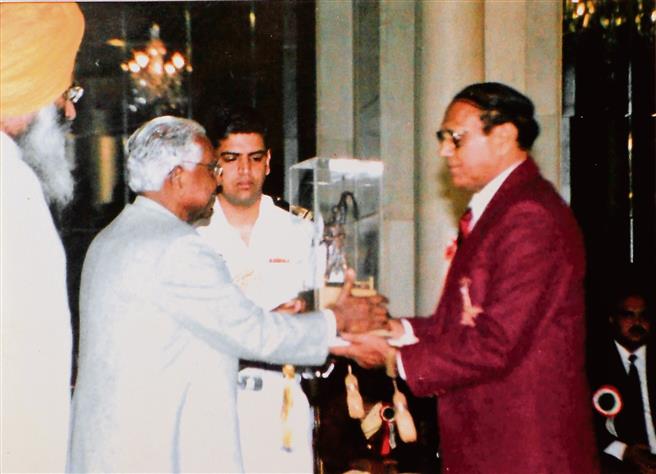
Recipient of Vir Chakra for bravery in the 1962 war and a member of the Indian hockey teams that won gold medals in the 1956 and 1964 Olympics, Lt Col Haripal Kaushik (retd) passed away in Jalandhar in 2018. A chapter in a new book, ‘Camouflaged: Forgotten Stories from Battlefields’ by Probal Dasgupta (Juggernaut), recalls his inspirational story. His daughter Veronica Kaushik pays a tribute…
To the world, my father was a war hero and an Olympic champion. Everyone who knew him remembers him as a humble, kind-hearted, yet strong-willed, person. To me, he was the sweetest father — in fact, after my mother passed away, he gave me the love of both parents.
Belonging to Khusropur village close to Jalandhar, my father saw great highs and terrible lows in his life, but he never lost his humility, sincerity and sense of humour. He never got angry with anyone, never raised his voice.
He had such a commanding personality that just one look from him would make you realise he was displeased about something. But he had a helpful nature and was very social. He never missed any opportunity to meet people. He was a great conversationalist — loved telling jokes and stories, and he used to read endlessly.
My father believed in commanding respect by being respectful to others. That trait never left him throughout his hockey days, or when he served in the Army (having retired as Lt Colonel from 1 Sikh Regiment), or when he became the general manager at a sugar mill in Phagwara and helped revive the company. All his colleagues adored and respected him.
Despite all his accomplishments in different fields, his true love was hockey. In his childhood, he loved playing the sport and would mostly be in the field and never in class. His teacher used to say to him, ‘Haripal, yaa taa hockey khed lai, yaa class laa leya kar (either play hockey or come to class).’ He used to smile while telling me this anecdote.
He never lost that dedication towards the game. He used to tell me that his shoulder would often get dislocated while playing. He would just get off the field, set his shoulder back himself and start playing again. He won two Olympic gold medals (Melbourne in 1956 and Tokyo in 1964) and an Asian Games title, but among his teammates and juniors, he is remembered for being an unselfish player. He would never show off and always pass the ball. Another thing that everyone told me about him was that he was always smiling on the hockey field and was never disheartened by any situation.
It was his resolve that helped him survive the harsh terrain and biting cold for days after an enemy ambush during the 1962 Sino-Indian war. He told me that they had to even eat snakes to survive. He was awarded the Vir Chakra. But it was a terrible time for him and he rarely spoke about the war. Two years later, he was part of the hockey team that won the Olympic gold and it probably helped heal the wounds. Though I don’t think that it was something one could forget, he never showed any signs of trauma. He never liked to dwell on the past, and through all his ups and downs, he lived a contented life. (As told to Indervir Singh)
